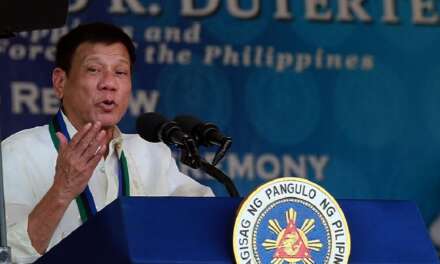By Ji Giles Ungpakorn*
Generally, it was felt that the World Social Forum in India was a gathering of the “Left”, in a plural sort of way, not some neutral space for academic discussion, and for many people who attended, the open debate and shared experiences should result in some sort of action towards building a better world. The fact that it was acknowledged that it was “the Left”, is a welcome development when compared to the “peoples’ assemblies” in Thailand.
The WSF reflected the tensions between the “old” and the “new”, which are found in any fast-growing progressive movement.
WITHIN THE WSF: There were differences of approach to the organisation of meetings. Large meetings with full platforms, which allowed for little if no time for any serious debate and discussion among ordinary delegates were of limited benefit. It was noticeable that one important concrete decision, the 20th March world wide action against the war, came out of a different kind of forum: the general anti-war assembly, which involved much more participation and discussion by activists. Also my experiences of excellent political debates with many Indian comrades came from meetings organised in seminar rooms by the International Socialist Tendency. I’m sure other delegates had other similar experiences.
REFORM VS REVOLUTION: This was very clear, say, in the debate between people like Joseph Stiglitz and Dita Sari over their attitudes to the WTO, IMF and the capitalist system as a whole.
BETWEEN THE WSF WORLD WIDE AND THE THAI PEOPLES MOVEMENT: What was noticeable was the way people took it for granted in the WSF that the imperialist war in Iraq was linked to neoliberalism and that the anti-war struggle would hit the US government at its most vulnerable point and thus help spur the anti-neoliberal struggle. This is not something understood generally by the Thai movement which has suffered from an “apolitical” position, mainly as a result of the legacy of Maoism and the influence of conservative NGOs. Many Thai delegates to the WSF were unaware of the anti-war meetings and any of the decisions (eg 20th March) and do not seem to understand the importance of organising for the 20th March.
ORGANISING: The Asian anti-war march on the final day contrasted very strongly with marches organised “from above” by professionals, which are the general rule in Thailand. Young Indian radicals were drawn into the march by the vibrancy of the South Koreans who tended to lead themselves from below.
DEPRESSION VS HOPE: Even within the WSF there were those who talked of another world, but could not imagine such a world. The speaker from the European Green party, who spoke at the large meeting on parties and social movements, could not imagine any other form of political party other than one which “had to compromise” inside parliament. But at the smaller meeting on “Life after capitalism” speakers discussed how we could organise society in a completely different manner from today.
Finally, what filled me with hope was the unity meeting of 45 left-wing organisations, Maoists and Trotskyists, which decided that we all need to work together in a concrete manner to contribute to a new socialist and non-sectarian world within the WSF process. one very important issue which the left must come to terms with is the attitude towards NGOs, especially in Asia. We must get away from narrow sectarianism and find ways to work with NGO activists in opposing neo-liberalism and imperialism, while at the same time never shying away from political debates. The failure of narrow sectarianism was clearly shown in the case of the isolated Mumbai Resistance 2004 which attracted a few thousand people compared to the 100,000 who attended the WSF.
* Ji Ungpakorn teaches political science at Chulalongkorn University in Bangkok . He is also a member of Workers Solidarity.







